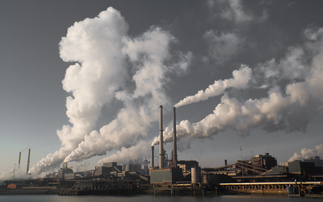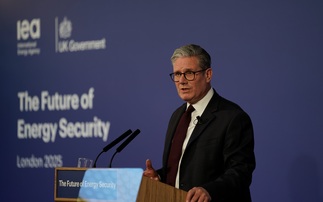US and Canada commit to cutting methane emissions by 40 per cent, promise to work with ICAO to cut aviation emissions, build a clean energy alliance, and beef up protection of the Arctic
US President Barack Obama and Canadian Prime Minister Justin Trudeau have today announced a new climate partnership to cut emissions and accelerate the roll out of clean energy across both countries in support of the international Paris Agreement.
In a widely trailed joint statement, the two leaders promised the US and Canada would both play an leadership role in driving the global transition to a low-carbon economy, while also delivering on a wide-range of new climate pledges.
"The two leaders regard the Paris Agreement as a turning point in global efforts to combat climate change and anchor economic growth in clean development," the statement reads. "They resolve that the United States and Canada must and will play a leadership role internationally in the low carbon global economy over the coming decades, including through science-based steps to protect the Arctic and its peoples."
Under the bilateral agreement, the two countries committed to a new regulatory push to reduce methane emissions from the oil and gas industry by 40-45 per cent by 2020, against 2012 levels, and also announced renewed efforts to curb emissions from highly-polluting refrigerant gases.
In a potentially significant move for on-going negotiations around plans to impose a carbon pricing mechanism on the international aviation industry, the statement expresses Obama and Trudeau's "strong commitment" to addressing aviation emissions, both bilaterally and through the International Civil Aviation Organization (ICAO).
The agreement calls on other world leaders to join them in backing the adoption of a carbon offset measure at the ICAO's General Assembly, which is due to take place this autumn.
Obama and Trudeau also promised more action to protect the Arctic, which is experiencing temperatures seven degrees above normal this winter.
The two countries will jointly establish new land and marine nature reserves in the region, set stringent new development standards for economic activities in the Arctic, and have called for a "binding international agreement" to prevent unregulated fishing in the Central Arctic Ocean.
They also promise to adopt a "science-based approach" to assessing new oil and gas exploration in the delicate region. "If oil and gas development and exploration proceeds, activities must align with science-based standards between the two nations that ensure appropriate preparation for operating in Arctic conditions, including robust and effective well control and emergency response measures," the statement read.
Greenpeace's UK executive director John Sauven said the announcement marks a "serious step forward" towards achieving full protection for the Arctic. "The US and Canadian Governments are now looking at the fossil fuel industries through a new lens," he said in a statement.
"There is no way that drilling for oil in the ice covered waters of the Arctic is compatible with the climate agreement that global leaders signed in Paris. The commitment by Obama and Trudeau to ‘building a sustainable Arctic economy' makes it clearer than ever that Arctic oil must stay in the ground."
This article is part of BusinessGreen's Road to Paris hub, hosted in association with PwC.










